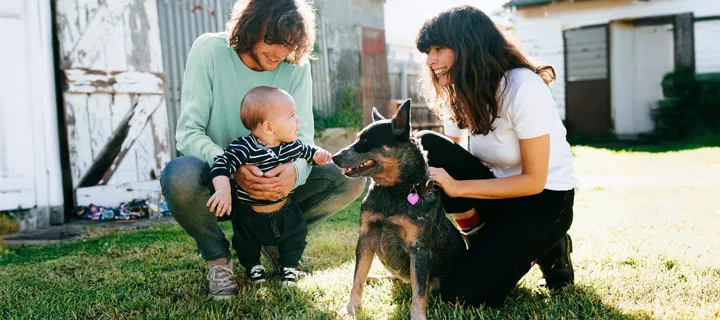
Venturing into the property market for the first time is a major life achievement, and doing it on your own? That’s truly impressive.
In today’s market, where affordability feels out of reach for many, single-income buyers often face even steeper challenges. Limited borrowing capacity, tighter budgets, and the uphill task of saving a deposit can all seem overwhelming.
But here’s the good news: buying your first home solo is not only possible, it's becoming increasingly common. This guide is here to help you navigate the essentials as you embark on this exciting journey.
Let’s talk deposits
The often-mentioned 20% deposit can seem like the biggest obstacle to home ownership. But here's the reality – you don’t necessarily need that full amount to get started. While reaching the 20% mark helps you avoid Lender’s Mortgage Insurance (LMI), jumping into the market sooner with a smaller deposit and paying the LMI can sometimes be the smarter move, especially when prices are climbing.
If you’re not familiar, LMI is a charge passed on by lenders when your deposit is below 20%. It’s there to protect the lender, not you, in case of loan default. The upside? It opens the door to buying a property with as little as 5% down. So, for a $600,000 home, that’s $30,000, which is a far cry from the $120,000 needed for a 20% deposit.
LMI can be paid upfront or added to your loan balance. Just be aware that if you roll it into your mortgage, it will attract interest just like the rest of the loan.
The saving game
Aiming for a smaller deposit is totally doable, it just means being intentional with your savings. Without a second income – or a lottery win – every dollar counts even more. That often means tightening your spending habits and sticking to a clear savings plan, but you can do it.
There are plenty of budgeting tools and savings strategies to help you along the way. With some discipline and focus, building up your deposit can feel more manageable than you might expect. And the reward – having a place to call your own – makes it all worthwhile.
- Get your spending under control
Do you really need four streaming services or to get a haircut every four weeks?
You may be interested in: mymo by BCU to reign in your budget. - Simplify saving
You’ll be more likely to reach your goal (and sooner) if saving money is easy.
You may be interested in: The BCU Boss Saver account (teamed up with Pay&Save) to get your spending helping your savings.
Know your budget
Buying a home solo means your borrowing power may be lower than that of a couple. Lenders will assess your income, expenses and ability to manage repayments when deciding how much you can borrow. This may limit the type or location of property you can afford. As a result, you might find yourself looking at more affordable suburbs, smaller apartments, or properties in need of renovation.
Remember though, compromise is part of the journey for almost all first-home buyers, partnered or not. The bright side? A smaller loan often means lower monthly repayments and that can offer peace of mind when you’re covering the home loan on your own.
Tap into available support
Thankfully, there are a number of government schemes designed to assist first-time buyers. These include grants, stamp duty concessions and other incentives, though the details vary depending on your state or territory.
Make sure to research what’s available in your area. These programs can significantly reduce upfront costs and make your first step into the property market more achievable.
Check out the support available in New South Wales and Queensland.
Note: The First Home Super Saver Scheme is a federal government initiative that may be of interest.
Think outside the box
An increasingly popular option among solo buyers in Australia is "rentvesting". This is where you buy an investment property in a more affordable area while continuing to rent in a location you want to live in. This strategy allows you to build equity and gain a foothold in the property market, without sacrificing your current lifestyle.
Alternatively, you could consider using a guarantor. This involves a family member (often a parent) offering their own property as security for your loan. It can help you avoid LMI or boost your borrowing power. Just remember, it’s a big responsibility for both parties, so make sure everyone involved understands the risks.
Fun fact: You don’t have to be in a relationship to buy a home with someone. Co-buying with a sibling, parent, or even a trusted friend is entirely possible and can make homeownership more accessible.
Owning it on your own
Taking on the property market solo is a bold move. But with careful planning, smart decisions, and the right support, it’s completely within reach. You’re not just buying a home; you’re investing in your future and building lasting financial security. And that’s a milestone worth celebrating.
You may also be interested in:

Quick tips for saving a house deposit in your 20s

First home buyer checklist

Home lending specialists
Important information
Banking and Credit products issued by Police & Nurses Limited (BCU Bank).
Any advice does not take into account your objectives, financial situation or needs. Read the relevant terms and conditions, before downloading apps or acquiring any product, in considering and deciding whether it is right for you. The Target Market Determinations (TMDs) are available on our website or upon request.